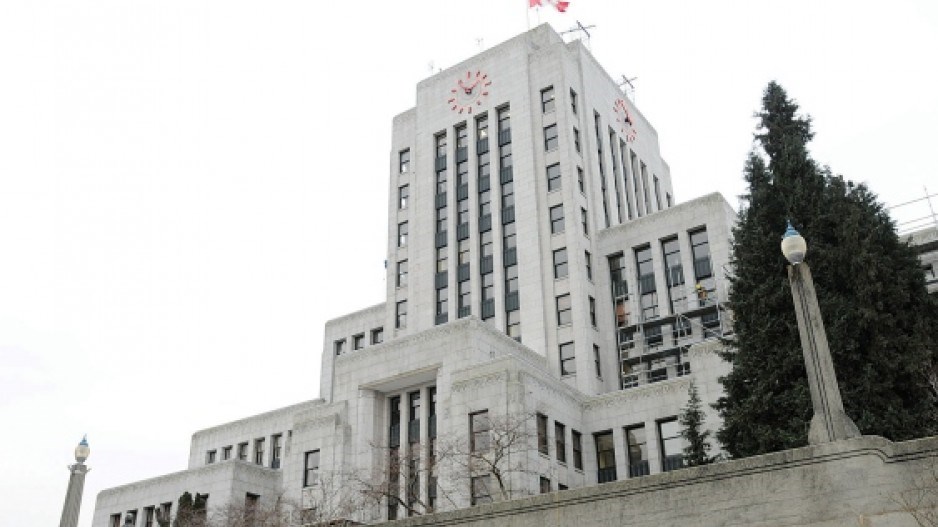The last two weeks have been of substantial rebooting for Vancouver Mayor Ken Sim and his majority slate of council.
In case you hadn’t noticed, things were not going exactly according to plan.
When you win as resoundingly as the ABC team did, with a clear message from the city for change and with such a wide range of interests to satisfy, you can find it difficult not only in knowing where to start but in whom to first please. And it has shown.
Yet in the last two weeks, there were finally signals that the themes of its election campaign were aligning with the tactics of the council on matters of finances, safety and development. And not a moment too soon.
After all, voters who believed that the city’s cheery spending ways would cease under Sim were shocked last month. Some had reason to wonder whether the ABC acronym stood for A Better City or A Backfiring Change.
The party heard profound disappointment and anger from its most ardent base of support when the new mayor and council conveyed a property tax increase of 10.7 per cent for this year. The increase is at a passive remove from the inflationary, recessionary context of the times and the lives of those who will bear the bill.
The expectant and optimistic business community was gobsmacked, homeowners were suddenly wishing they could be age 55 to defer their pending levy, and it was as if Kennedy Stewart hadn’t relinquished the mayoralty or Gregor Robertson had reacquired it.
For all its activity in its first 100 days or so, the line-by-line scrutiny of the historically opaque budget didn’t get done or couldn’t be injected into the process. There were genuine fears, too, that a double-digit increase would be necessary again next year – so far behind in upkeep have been the city’s capital assets.
But last week, to dampen the furore, Sim announced a task force of accountants and advisers that will spend six months poring through and recommending reductions where it can in about two-thirds of the $1.9 billion in civic spending.
One of this administration’s principal challenges is a bureaucracy loaded at its upper echelon with public servants who were recruited by and quite liked working for its predecessors. Asking them to discover efficiencies is like asking me to forget where I hide my evening snacks.
Sim hasn’t said if this task force is tasked with a forceful target, but it will be a failure – and a statement about the structural flaws of the system – if it doesn’t find savings in double-digit percentages.
Two days later, and about nine months late, city workers backed by the police descended into and dismantled the elongated encampment along East Hastings. Sim, abetted by Premier David Eby, ensured there was shelter for those who wished it. Many didn’t.
I am, ahem, experienced enough to recall how then-federal health minister Jake Epp, way back in 1986, dared to say that some homeless people like their lifestyle and don’t want a three-bedroom home. For that, he was denounced from every angle and taken less seriously thereafter. Today there is a more sophisticated take on roughly the same assertion: Of course people want a home, but for some, shelters aren’t particularly sheltering and can be places of harm and not home, and so some in that encampment will prefer another outdoor site until real housing is available.
But in daring to do what Stewart wouldn’t, Sim changed the channel on the Downtown Eastside, signalling he had only so much tolerance for the deterioration of East Hastings and the danger it posed within and without. Stewart tweeted that somehow this amounted to an abandonment of Indigenous reconciliation and the resumption of “traditional genocidal practices.” He declared: “Welcome to Cruel Vancouver.” I thought this might be from a fake Twitter account, but no, he has that revenue generating blue checkmark from record-wealth-losing Elon Musk.
A few days preceding the signature week, council also delivered a message on housing: It will come at a pace council and not the city staff proposes. Staff had brought forward “pace of change” options to harness the speed with which the Broadway development plan would unfurl by limiting the number of plans the city would entertain annually. Uh, uh, council said.
Message delivered by that and by the other measures: Let’s get on with it.
Kirk LaPointe is publisher and executive editor of Business in Vancouver and vice-president, editorial, of Glacier Media.



